第54章 CHAPTER XXVIII(1)
Ernest had heard awful accounts of Dr Skinner's temper, and of the bullying which the younger boys at Roughborough had to put up with at the hands of the bigger ones. He had now got about as much as he could stand, and felt as though it must go hard with him if his burdens of whatever kind were to be increased. He did not cry on leaving home, but I am afraid he did on being told that he was getting near Roughborough. His father and mother were with him, having posted from home in their own carriage; Roughborough had as yet no railway, and as it was only some forty miles from Battersby, this was the easiest way of getting there.
On seeing him cry, his mother felt flattered and caressed him. She said she knew he must feel very sad at leaving such a happy home, and going among people who, though they would be very good to him, could never, never be as good as his dear papa and she had been; still, she was herself, if he only knew it, much more deserving of pity than he was, for the parting was more painful to her than it could possibly be to him, etc., and Ernest, on being told that his tears were for grief at leaving home, took it all on trust, and did not trouble to investigate the real cause of his tears. As they approached Roughborough he pulled himself together, and was fairly calm by the time he reached Dr Skinner's.
On their arrival they had luncheon with the Doctor and his wife, and then Mrs Skinner took Christina over the bedrooms, and showed her where her dear little boy was to sleep.
Whatever men may think about the study of man, women do really believe the noblest study for womankind to be woman, and Christina was too much engrossed with Mrs Skinner to pay much attention to anything else; I daresay Mrs Skinner, too, was taking pretty accurate stock of Christina. Christina was charmed, as indeed she generally was with any new acquaintance, for she found in them (and so must we all) something of the nature of a cross; as for Mrs Skinner, I imagine she had seen too many Christinas to find much regeneration in the sample now before her; I believe her private opinion echoed the dictum of a well-known head-master who declared that all parents were fools, but more especially mothers; she was, however, all smiles and sweetness, and Christina devoured these graciously as tributes paid more particularly to herself, and such as no other mother would have been at all likely to have won.
In the meantime Theobald and Ernest were with Dr Skinner in his library--the room where new boys were examined and old ones had up for rebuke or chastisement. If the walls of that room could speak, what an amount of blundering and capricious cruelty would they not bear witness to!
Like all houses, Dr Skinner's had its peculiar smell. In this case the prevailing odour was one of Russia leather, but along with it there was a subordinate savour as of a chemist's shop. This came from a small laboratory in one corner of the room--the possession of which, together with the free chattery and smattery use of such words as "carbonate," "hyposulphite," "phosphate," and "affinity," were enough to convince even the most sceptical that Dr Skinner had a profound knowledge of chemistry.
I may say in passing that Dr Skinner had dabbled in a great many other things as well as chemistry. He was a man of many small knowledges, and each of them dangerous. I remember Alethea Pontifex once said in her wicked way to me, that Dr Skinner put her in mind of the Bourbon princes on their return from exile after the battle of Waterloo, only that he was their exact converse; for whereas they had learned nothing and forgotten nothing, Dr Skinner had learned everything and forgotten everything. And this puts me in mind of another of her wicked sayings about Dr Skinner. She told me one day that he had the harmlessness of the serpent and the wisdom of the dove.
But to return to Dr Skinner's library; over the chimney-piece there was a Bishop's half length portrait of Dr Skinner himself, painted by the elder Pickersgill, whose merit Dr Skinner had been among the first to discern and foster. There were no other pictures in the library, but in the dining-room there was a fine collection, which the doctor had got together with his usual consummate taste. He added to it largely in later life, and when it came to the hammer at Christie's, as it did not long since, it was found to comprise many of the latest and most matured works of Solomon Hart, O'Neil, Charles Landseer, and more of our recent Academicians than I can at the moment remember. There were thus brought together and exhibited at one view many works which had attracted attention at the Academy Exhibitions, and as to whose ultimate destiny there had been some curiosity. The prices realised were disappointing to the executors, but, then, these things are so much a matter of chance. An unscrupulous writer in a well-known weekly paper had written the collection down. Moreover there had been one or two large sales a short time before Dr Skinner's, so that at this last there was rather a panic, and a reaction against the high prices that had ruled lately.
The table of the library was loaded with books many deep; MSS. of all kinds were confusedly mixed up with them,--boys' exercises, probably, and examination papers--but all littering untidily about.